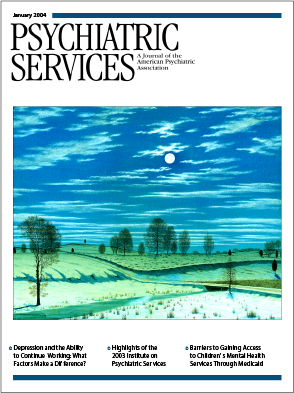Rethinking Mental Health and Disorder: Feminist Perspectives
Rethinking Mental Health and Disorder: Feminist Perspectives is an edited volume consisting of five chapters of feminist theory and six chapters examining psychopathology from a feminist perspective. The book's editors, Mary Ballou and Laura S. Brown, have a long-standing professional background in feminist psychology.
The first section, "Developing Feminist Theories," is, as billed, devoted to theoretical discussion. Not having much background in feminist thought, I found this section jargon laden and slow going. However, although dense, these chapters do provide a background and some general principles with which to understand feminist psychology. Perhaps most interesting is the senior editor's own chapter, "Toward a Feminist Ecological Theory of Human Nature: Theory Building in Response to Real-World Dynamics," in which Ballou and coauthors propose a model of human nature that incorporates everything from individual factors to the influence of the earth's climate and time in history. By including the "macrosphere" of societal forces, they hope not only to better understand the individual experience but also to "impel us to work towards a transformation of society by linking the personal, the political and action."
Lofty goals indeed! It is hard to argue against the notion that individuals are shaped by all sorts of external factors that are traditionally overlooked by mainstream psychology. And it is not difficult to accept the fact that our efforts as clinicians to help individuals may be limited by social realities. As we are all sometimes painfully aware, treating an individual's depression won't relieve the person's poverty or oppression. Ballou and associates, however, seem to suggest that mental health professionals should become social activists in order to better serve their patients. Although this view is admirable, it seems a tad idealistic, impractical, and presumptive to expand the role of the mental health provider to include fighting for social justice. Nonetheless, the chapter is provocative, well reasoned, and a good prelude to the second half of the book.
The second section, entitled simply "Psychopathology," is much more accessible to general mental health providers. It covers both female-dominated diagnoses, such as chronic fatigue syndrome, and common diagnoses, such as depression and addictions. Also included is an intriguing chapter called "Raging Hormones?: Feminist Perspectives on Premenstrual Syndrome and Postpartum Depression," which evaluates the extent to which stereotypes influence the diagnosis of these conditions. The highlight for me was the chapter titled "The Chrysalis Program: A Feminist Treatment Community for Individuals Diagnosed as Personality Disordered," which describes a day treatment program in Ontario developed for patients—mostly women with a diagnosis of borderline personality disorder—who were heavy users of services but did not obtain significant benefit from them. By incorporating feminist principles, the program manages to empower the clients to gain control over their lives.
In general, these chapters demonstrate a real-world framework for putting the "ecofeminist" model to practical use by underscoring the role of environmental causes in the development of psychopathology and the importance of listening to the individual woman's story.
In summary, this volume is a bit heady at times, a bit ethereal at others, but nevertheless thought-provoking and stimulating. The book is worth at least a perusal, if only to open one's mind to another perspective.
Dr. Chaplin is staff psychiatrist at Community Mental Health Affiliates in New Britain, Connecticut.



